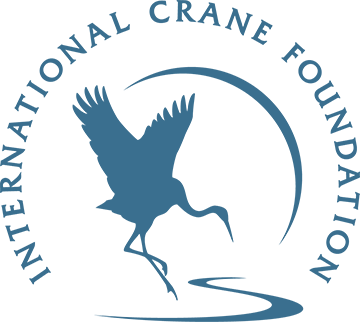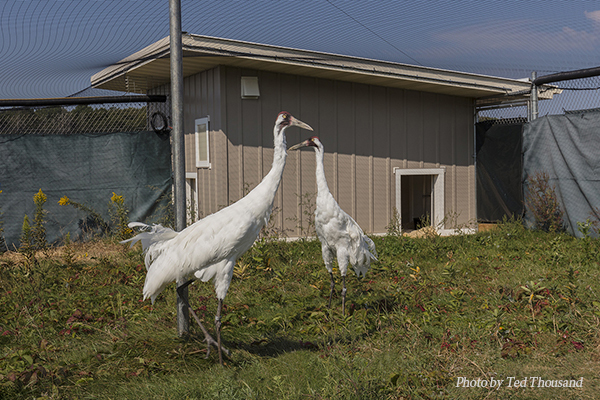
Due to the COVID-19 crisis and our commitment to our staff member’s safety, the International Crane Foundation’s breeding season will look significantly different this year. While our aviculture team is as busy as ever providing the same quality daily care to our birds, we’ve taken several additional steps to ensure staff safety. These include the decision not to bring additional aviculture interns to our headquarters, including our four Whooping Crane chick-rearing interns, who typically start in April or May. Our aviculture staff also has split into two teams that do not overlap with each other, to increase social distancing ability and create redundancy in case one team member falls ill.
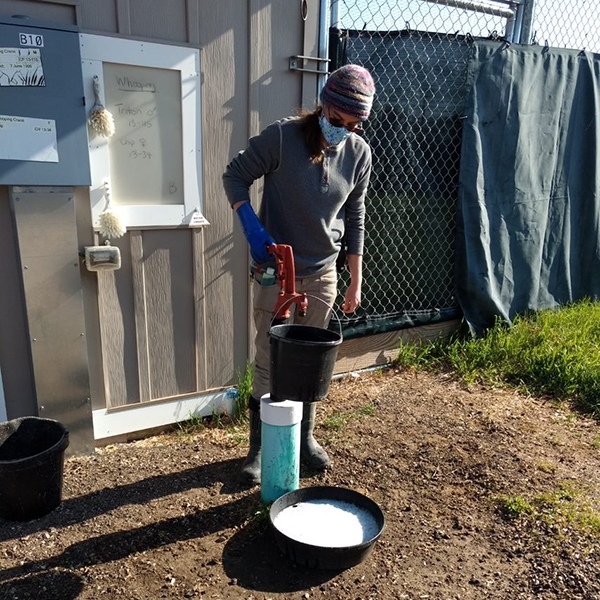
The Crane Conservation Department’s work plan has been modified based on the staff changes, and we have postponed some activities that do not directly impact our flocks’ health or welfare until we can conduct this work safely and effectively. For example, we canceled on-site training with colleagues from other zoo institutions, postponed animal transfers, adjusted the cranes’ enrichment schedule and evaluated breeding plan goals for the flock.
Given safe distancing guidelines and national and local travel restrictions, which affect our ability to transport eggs and birds between captive breeding centers, our captive breeding season is impacted. After serious consideration, we determined that artificial insemination (AI) would put staff in very close proximity with each other and increase potential health risks for COVID-19. We made the decision not to perform AI this spring for many of our species, including Whooping Cranes. Unfortunately, this reduces the likelihood of fertile eggs for many pairs and may result in very few if any Whooping Crane chicks being reared this season at our headquarters.
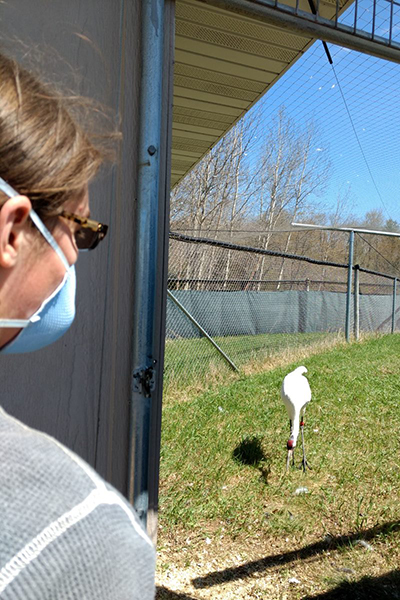
In the field, our research teams are actively tracking wild nests in Wisconsin and have reported several nests with chicks. Look for our upcoming blog on how we are adapting to this “new normal” in the field. We are committed to the Whooping Crane Reintroduction program and continue to be in close communication with our zoo and U.S. Fish and Wildlife partners facing similar challenges.
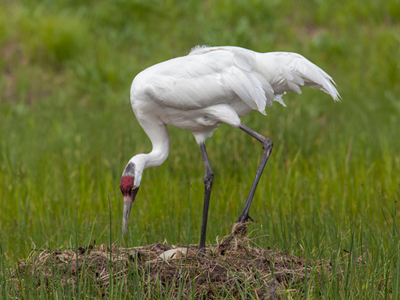
Of course, no one has informed the cranes of the COVID-19 pandemic. They are still progressing through the motions of their breeding season and are starting to produce eggs. At our headquarters, nine of the 15 species have laid eggs so far this spring! Without the pressure to intensively manage for breeding, we simply replace the infertile eggs with plaster dummy eggs and allow the birds to go through their motions of incubation.
Why replace their eggs with dummies? One reason is infertile eggs can get really stinky if incubated for several weeks. We also save the eggshells for our plaster dummy eggs. Many of our birds typically don’t get to experience a full-term incubation, so this provides a valuable opportunity to reinforce this critical pair-bonding, parental skill. We hope this practice will benefit the pairs’ incubation success next year. Thanks to our new video monitoring system, we remotely keep close tabs on how birds are doing during the breeding season.
Our Crane Conservation Department continues to explore ways to make the best of this challenging time and is regularly re-evaluating our management plans based on the current risks of COVID-19. The breeding season is one of the most exciting times of the year for our staff, and we certainly miss this gratifying and essential part of our work.
 Story submitted by Kim Boardman, Curator of Birds. Click here to learn more about our Global Headquarters.
Story submitted by Kim Boardman, Curator of Birds. Click here to learn more about our Global Headquarters.
